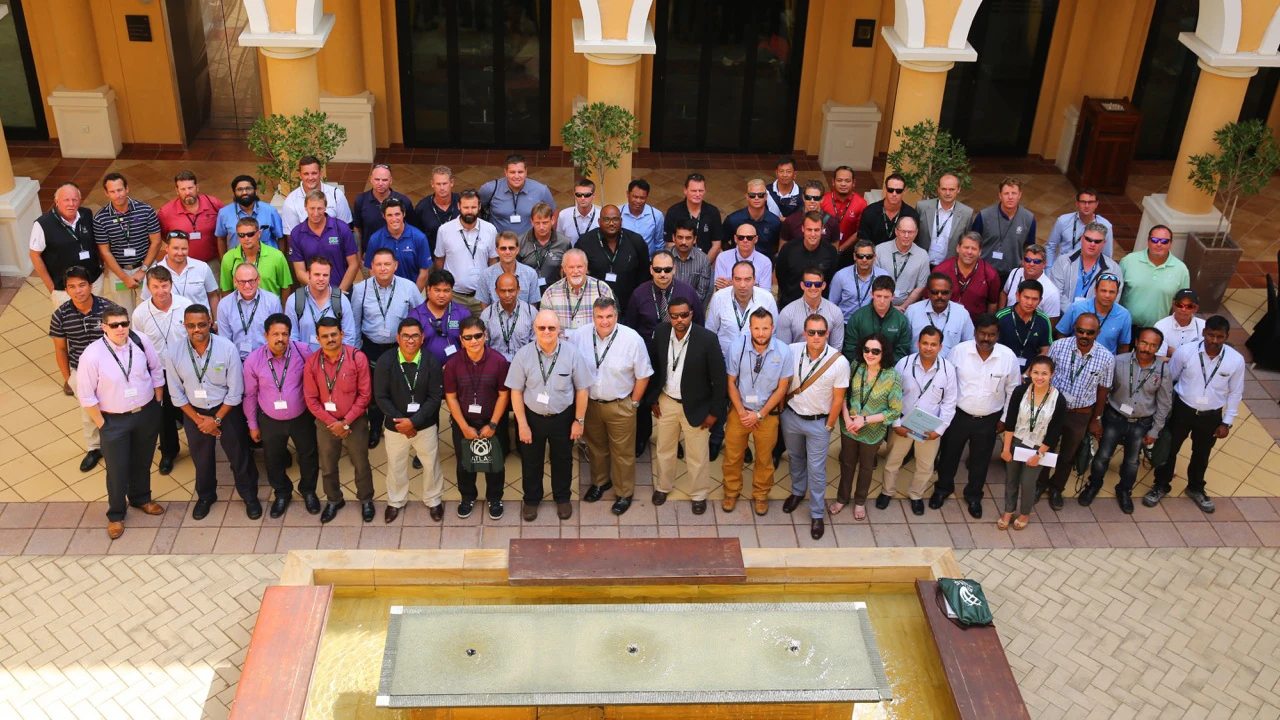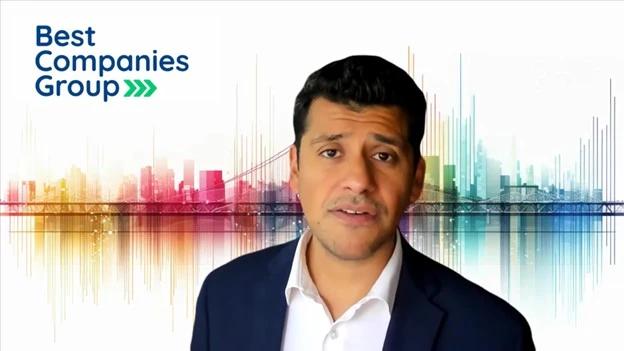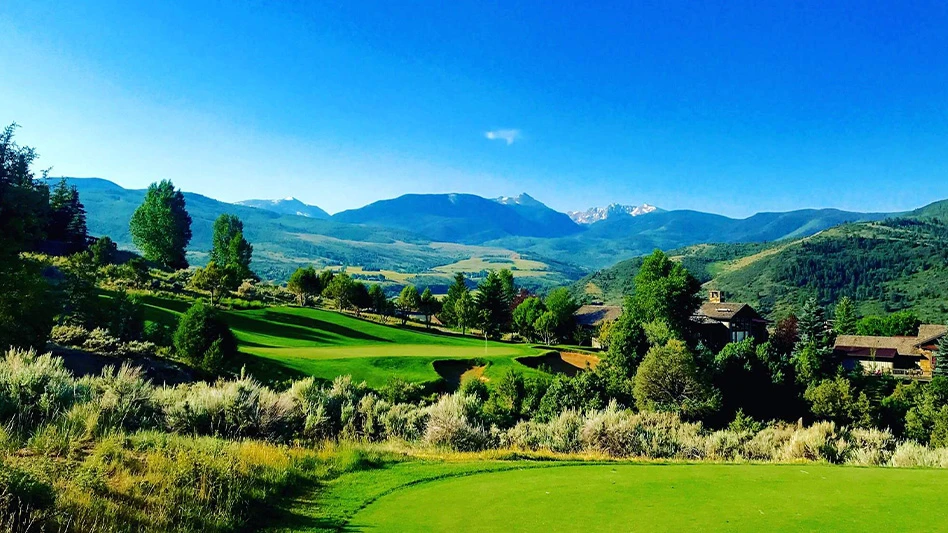
Golf course superintendents and sports field managers from across the Gulf Region gathered in Dubai last week to learn more about the sustainable qualities and management practices of seashore paspalum. In an educational seminar sponsored by Atlas Turf International, Pure Seed and Polyclean Turf Division, globally recognized turfgrass expert Dr. Ron R. Duncan engaged with nearly 100 turf professionals.
With water issues escalating in the Gulf Region and around the world, turfgrass professionals seek environmentally proactive solutions for golf and sports field projects. As the turfgrass variety most conducive to irrigation using reclaimed water, seashore paspalum is the sustainable choice for more and more projects worldwide. Organizers of the educational program aimed to provide attendees with the information needed to effectively manage paspalum and meet performance and sustainability goals.
Seminar topics included water quality challenges, greens speed, and maintenance practices for nutritional issues and disease management. Duncan provided research-based information instructing attendees on the specific practices recommended for maximizing the benefits of both vegetative and seeded paspalum.
“The combinations of a desert environment in the Middle East region, a persistent high evapotranspiration climate, and the use of TSE effluent water for irrigation on all sports turf venues creates significant salinity management challenges on perennial turfgrass ecosystems,” Duncan said. “Seashore paspalum has proven successful in those venues, and understanding the grass in concert with salinity issues is key to making sustainable management decisions in order to meet the golf course and sports field playability expectations.”
Lucas Solis of Pure Seed provided additional education on the topic of ryegrass breeding, selection and management for overseeding during the region’s cooler months. Improved ryegrass varieties offer turfgrass managers options to address various agronomic goals, including the need for quick germination and end-of-season transition or the need for increased heat tolerance.
The Els Club, managed by Troon Golf, was the host venue for the seminar and currently features hybrid Bermudagrass fairways overseeded with ryegrass. Clinton Southorn, agronomy superintendent at The Els Club, provided insight into the process including the preparation required for optimal success.
“The seashore paspalum seminar was a unique world-class event,” said Neville Wenhold, agronomist at Desert Group, responsible for the grow-in of Dubai Hills Golf Course featuring the new Pure Dynasty seeded paspalum. “Dr. Duncan’s presentation was phenomenal, in-depth, and thorough. He shared his valuable experience and expertise on various topics, which will be incorporated into our grow-in and daily maintenance programs.”
Increasing numbers of projects in the region are selecting vegetative or seeded paspalum. In the United Arab Emirates, paspalum projects include Al Zorah in Ajman, Yas Island Links in Abu Dhabi, Dubai Hills, Dubai Golf City, The Faldo Course at Emirates Golf Club in Dubai, and The Legends Golf Club in Dubai, currently under construction. Projects in Doha, Qatar include Banana Island, Qatar International Golf Club, and Aspire Zone soccer pitches. Other paspalum projects in the region include King Abdullah Royal Greens Golf and Country Club in Economic City, Saudi Arabia and Ras Al Hamra in Muscat, Oman.
Latest from Golf Course Industry
- USGA focuses on inclusion, sustainability in 2024
- Greens with Envy 65: Carolina on our mind
- Five Iron Golf expands into Minnesota
- Global sports group 54 invests in Turfgrass
- Hawaii's Mauna Kea Golf Course announces reopening
- Georgia GCSA honors superintendent of the year
- Reel Turf Techs: Alex Tessman
- Advanced Turf Solutions acquires Atlantic Golf and Turf





